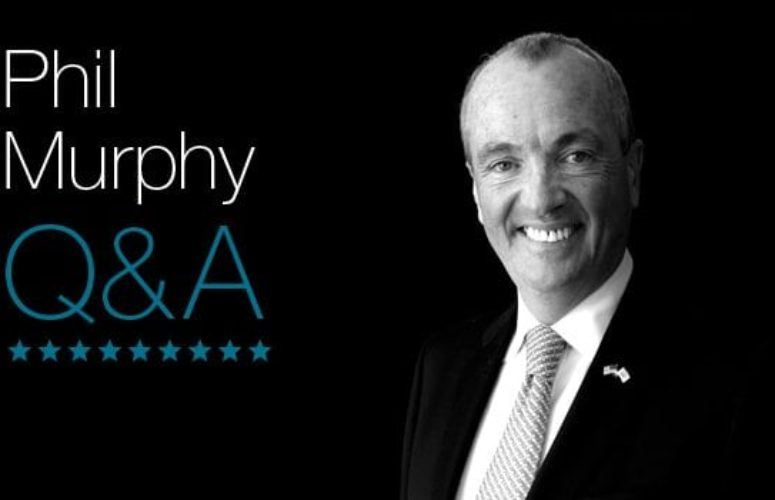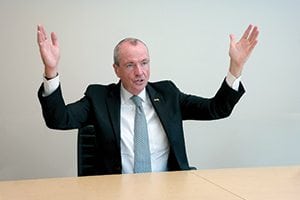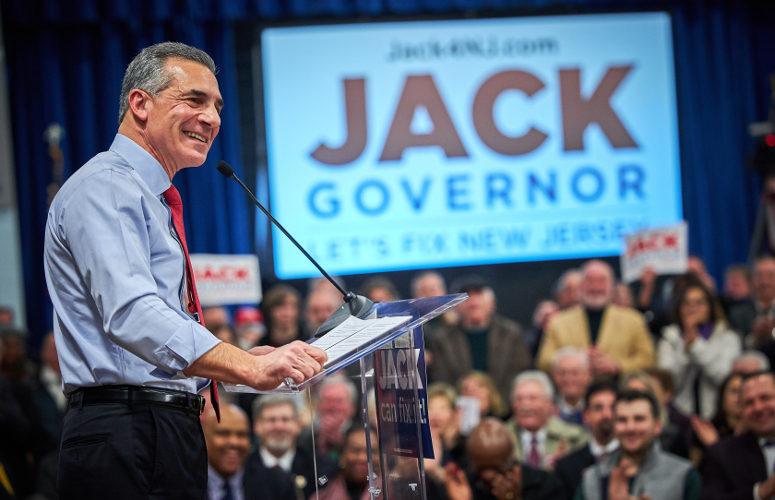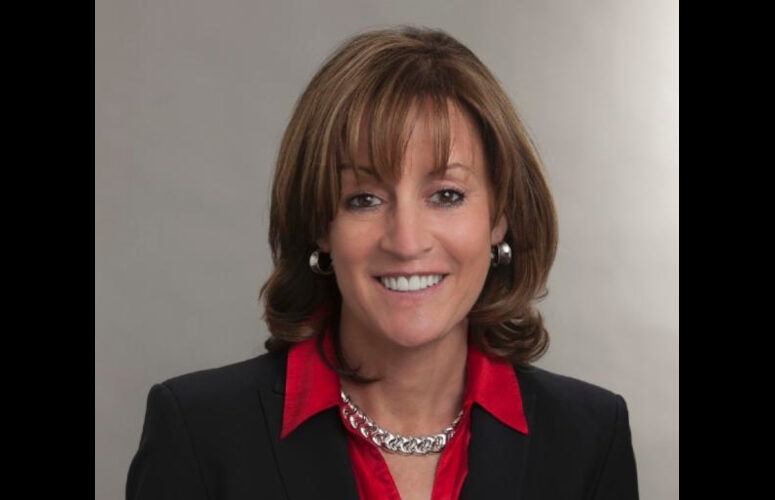
Phil Murphy: Q&A
The Gubernatorial Battle
By Anthony Birritteri, Editor-in-Chief On Oct 2, 2017Q: The state’s unemployment rate is currently 4.2 percent, below the national average (at press-time). Additionally, 281,700 private-sector jobs have been created since February 2010. Yet, we hear reports that the state lags its neighbors in terms of job creation. What are your plans for spurring job and overall economic growth (the right type of job growth) in the state?
A: The economy is better than it was, but everybody [in the nation] is doing better. We are just not good enough [in New Jersey]. We lag the region and, in some cases, the country. Our credit rating has been downgraded 11 straight times. We lead the nation in home foreclosures. Last year, there was a record all time household income increase in America. We finished 50 out of 50. Many people have left the job market completely. Those are the facts. We are better, but we are not good enough by a long shot.
We need to grow the economy and we need to make it fair again. We have left tens of billions of dollars of economic activity on the table. With that, lots of jobs.
We need to reboot some of the economies that we used to rely on and dominate the innovation and infrastructure economies.
The fairness agenda has lots of elements to it: the minimum wage going to $15 an hour over a period of years; equal pay; earned sick leave; college affordability; criminal justice reform; and child dependent care tax credits … but growth and fairness are the two big impetuses we need to pursue.
On the minimum wage increase, there is the notion that if I give my employees higher wages, it is at my expense, but the reality is a robust fairness agenda contributes to economic growth.
The idea of a public bank is a bank owned by our citizens. It has been done once before in North Dakota. The citizens would own the bank. It would do all of its business in New Jersey. The three lines of business, although we are not married to them, we think would be student loans at reasonable rates, small business loans (and that would be in coordination and not in competition with community banks), and small scale infrastructure loans (again in coordination with community banks). Right now, when counties, municipalities, the state and school boards collect fees or taxes, they put that money in a bank until they pay their expenses. In some cases, those dollars go into community banks which we should support and celebrate. However, in most cases, particularly at the state level, the money goes into Wall Street banks or it’s invested in commercial paper and corporations. Almost none of that money comes back to work in New Jersey.
For every dollar you lend in the economy, folks say you typically get $1.50 back in economic activity. That is meaningful. If you have $5 billion in deposits that would get lent into New Jersey’s economy, that is $7.5 billion in economic activity. That is a lot of jobs … a lot of state revenue.
Additionally, you could make the credible argument that we were Silicon Valley before there was a Silicon Valley. Bell Labs, Sarnoff Labs, AT&T, the life sciences, biotechs, pharmaceuticals … we used to dominate the [innovative] economy. We still have a decent hold on that, but a lot of our edge has left. So the STEM economy is one of those economies we think we can reboot. Many states that look like us are cleaning our clock in that economy right now.
Q: The state has delivered beneficial business and personal wealth tax reforms these past few years. What are your plans to maintain these reforms and deliver additional ones?
A: The main focus has to be the middle class, which has been hollowed out. We have to preserve it and reinvest in it via a variety of ways, not just tax policy and tax fairness, but investment in things like infrastructure and public education. We have had an administration that has had a trickle-down mentality. And now there is one in Washington, DC. We wholly and completely reject that mentality. We are big believers in the middle class, so this is about finding ways to cushion the blow of property taxes, as an example. Fully funding public education, which is a huge chunk of anybody’s property tax bill – not to mention the investment in public education – [would make sure] the middle class is secure at all costs.
Q: We hear both positive and negative stories about the state’s economic incentive programs. What are your thoughts about what is currently being offered? Should any changes be made?
A: Do incentives play a role and should they continue to play a role? Yes. The STEM industry is one we want to emphasize, so let’s line up our policies such that they are incentivizing STEM industry development. Or, if we believe in an urban agenda and we believe that as our urban centers go so does the state, then let’s line up policies consistent with that impetus.

“The main focus has to be the middle class, which has been hollowed out. We have to preserve it and reinvest in it via a variety of ways, not just tax policy and tax fairness, but investment in things like infrastructure and public education.”
— Phil Murphy
Q: What are your plans to rein in property tax increases and deliver property tax stabilization or decreases?
A: No one step solves the property tax crisis in the state. It takes a series of steps, some big, some small. On that list is to fully fund the school funding formula. It’s the only school funding formula ever blessed by our State Supreme Court and viewed to be a national model. It’s a bottom’s up approach, asking the sorts of questions we should be asking; that not every kid is born into the same set of circumstances.
We see a lot of appetite for sensible shared services initiatives across [the state]. We want to establish a fund where, if there are two communities that want to look at sharing a service, we would help pay for that study. We would help implement a solution.
The last piece to the property tax dilemma is that you have to grow the economy. We have calculated that we have left about $20 billion to $50 billion worth of economic activity on the table. That is probably $2 to $3 billion worth of state revenue.
Q: Since higher skills in the workforce promote higher wages and attract more businesses, what are your plans to improve primary, secondary and higher education in the state?
A: I would like to find the money, sooner than later, to fund universal pre-K and find a way to phase in free community college for everyone.
I was the US ambassador to Germany. The vocational/technical prowess that exists in the German model, and to the extent to which we can bring that model more fully into New Jersey, I think has huge implications. The STEM economy includes PhDs, but it also includes jobs up and down the food chain, including highly technical jobs. If you made college more affordable, funding some loan forgiveness programs that are consistent with where you want to take the state, I think you have something serious.
We talked about the idea if you are an employee of good standing, a new benefit would be that your company would forgive up to $2,000 per year, for a total of up to $10,000, of the student loan balance.
We also talked about an idea that – not yet fine tuned – could kill three birds with one stone: We lead the nation in exporting high school and college seniors. We want to emphasize the STEM economy, and that college is unaffordable for too many people. The idea we have is to stay in New Jersey for college, major in a STEM field, go to work in New Jersey in the STEM field, work for five years, then in years 6-10, the state would have a program to forgive up to, say, $3,000 per year [in college debt] [$12,000 for four years]. Today, the average student graduates with some $30,000 in students loans. So, you are talking about maybe up to half of that being forgiven.
Q: What are your plans on stemming the exodus of millennials and seniors leaving the state?
A: First, folks would lead you to believe we are shrinking, but we are still growing. The dynamics and demographics of who is leaving and who is coming are dramatically different, without a question.
I’d want to apply for the job of governor of the state that we used to be. I refer to a series of words that used to describe the state that no longer apply: being fiscally responsible, a state that people trust and respect; a state where the economy grows and is fair; a state where leadership is inclusive; a state that is known for smart innovative government; that does big things; that treats each other with civility.
I believe with all my heart that we can recapture all of those descriptors, and, at the end of the day, become compelling again … that we will grow, be fair, will have inclusive leadership, and will be progressive.
Q: How do you plan to approach solving the state’s pension crisis, while keeping the state’s budget in check?
A: One of the big moves on the chess board is to own up to our end of the pension obligation. I don’t see any way around that. I chaired the original pension task force under Gov. Codey 12 years ago. Our first recommendation was no more pension holidays. Basically, the state has to stand up to its obligations.
How do you do that? You find the resources from a number of different areas. We have already talked about growing the economy: I am a big critic of the proliferation of hedge fund managers who have managed these pension plans and extracted enormous fees, but have returned middling to weak returns.
Q: Any thoughts on maintaining benefits of existing state workers, but placing new employees into 401(k) plans, for example; giving them benefits equal to what workers in the private sector receive?
A: No, because it’s a little bit like the school funding formula. Let’s fund the [school] formula and then sit down and figure out if we have the right mouse trap. With all the moving parts we have, we won’t know what we should tweak. I’d say the same thing with the pension obligation.
Q: If you are elected will you make full pension payments right off the bat?
A: We will get there as fast as we can. You probably can’t do it from Monday to Tuesday, but there is an absolute commitment to fully funding the pensions.
Q: What is your plan to help state residents and businesses obtain and maintain affordable healthcare, especially in light of the healthcare debate in Washington, DC?
A: I am going to put aside the very real challenges that our public sector brothers and sisters have in terms of the implications of Chapter 78 in 2011 and the fact that you have tens of thousands of public sector employees taking home less pay today than they did seven or eight years ago. That is unacceptable and has to be dealt with. The big gorilla topic that we all talk about is the Affordable Care Act (ACA) and Medicaid expansion. The gains we have made are unambiguous: 800,000 people have insurance who did not have any before; three and a half million people with pre-existing conditions have insurance; tens of thousands of kids are able to stay on their parents’ insurance plans until they are 26; women have access to contraception in a way they didn’t before; seniors have access to life-saving drugs. Thousands of jobs have been created.
Is the ACA perfect? A lot of it is not. But it seems we are well up the mountain. Let’s find ways to make it better. I am glad the governor signed on to expanding Medicaid, but I am not happy that the governor and lieutenant governor have been silent on this assault on the ACA and Medicaid.
Q: What are your plans to make sure the right infrastructure (transportation, energy and water) investments are made in New Jersey at an affordable rate?
A: If we are going to grow the economy again, it’s got to be on the back of the innovation and the infrastructure economies. This administration cancelled the ARC tunnel, it cut the support for NJ Transit by 90 percent. It took years of kicking the can down the road to finally find a Transportation Trust Fund (TTF) solution. These are decisions that ought to be made like this (snaps his fingers) because they are life-blood decisions for the state. Take commuter rail. If you are the fourth smallest state, geographically, in the country; if you are the densest state; and you sit beside the largest market in the world, New York, you’d think that if you’d get one thing right it would be commuter rail. This administration has proven that it didn’t get it right. You can make similar comments about our ports, bridges, roads and tunnels.
On our water infrastructure, the grade we get is a D. So that’s a challenge. We have to find the resources. Where do you get the money for the big projects? I hope the Trump administration’s actions matches its words, because infrastructure was one of the areas the president talked a good game. Regarding the Gateway Tunnel project, the administration backed off that. It has zeroed out the Gateway Tunnel under the federal New Starts budget. It has talked about private sector participation in lieu of the federal government, but even the private sector’s most rabid players say you need the federal government.
Q: New Jersey is a national leader when it comes to environmental protection. What are your plans for maintaining a clean environment in New Jersey?
A: It has been a leader. We have slipped under the Christie/Guadagno administration. We withdrew from the Regional Green House Gas Initiative (RGGI) states. We turned our back on solar and we did not press the button on offshore wind. Other states’ equivalents of the Board of Public Utilities (BPU) are taking much more 21st-century-leaning, enlightened views. By example, instead of a utility coming in and looking for a rate of return on a 300MW coal plant, you are starting to see the enlightened regulators around the country come in with a plan to conserve 300MW and get a return on that just as though you built a 300MW plant.
We have introduced a pathway to a 100 percent clean energy in New Jersey by 2050, and we envision solar and wind to be a big element of that. We believe that by 2030, offshore wind can provide up to 3,600 Mw of energy. This translates into powering a million and a half homes.
Q: What can we expect from you in your first 100 days in office?
A: A lot of work. … Putting our money where our mouth is: investments to grow the economy; the aggressive pursuit of fairness in our economy and society; investing in higher education; selling the full spectrum of strength of the state; and getting back to the things we used to stand for.
Q: What is driving you to be the next governor of New Jersey?
A: I grew up in a home without much. My dad didn’t graduate high school. My mom made sure I went to college. My dad instilled in me an interest in the community and politics. I would say, more broadly, service. That is something that has been in my bones forever. I want to raise my hands with others … I want to be part of a team that serves and gets this state in a better place for our children and their children.
I look at New Jersey and I believe we are where we are due to a failure of leadership. In some cases, it’s across generations of leadership. We still come to the table every day with an enormous amount of assets at our disposal. I believe the right leadership, with the right priorities, will be a lot closer to getting the state back on its feet sooner than we may think when we pick up the paper and read about all the “woe is me” news.
Phil Murphy: A Biography
Phil Murphy grew up in the Boston area, one of three siblings. He says his family was “middle class on a good day.” His father never finished high school and his mother worked as a secretary. He notes in his interview with New Jersey Business that, “My dad instilled in me an interest in the community and politics. I would say, more broadly, service.”
At the age of 13, he earned money (off the books) washing dishes in a coffee shop. He put himself through Harvard on loans and various part-time jobs. When he entered the Ivy League school, he considered becoming a musical theater actor (he tells New Jersey Business that “The Sound of Music” is among his favorite musicals, but he also enjoys Humphrey Bogart classics, especially “Casa Blanca.”) At Harvard, he was president of its famous Hasty Pudding Theatricals club.
He majored in economics at Harvard, and upon graduating, was accepted to the Wharton School of Business at the University of Pennsylvania. However, he did not attend right away. He instead worked for a few years in the Boston area. Eventually, he would get his MBA from the school. During the summer of 1982, he worked on Wall Street at Goldman Sachs as an intern. He says he started his career at the bottom, learning how economies grow and how to create jobs.
He would rise up the ladder at Goldman Sachs, moving to Frankfurt Germany in the early 1990s to head the company’s Central Europe operations, and, in the late ‘90s, moving to Hong Kong to head the Asian division.
He and his family moved to Middletown, New Jersey, in 2000. In 2005, he was appointed by Gov. Richard Codey to chair a task force on the state’s pension crisis. Among his recommendations was to sell public assets, raise the retirement age and base pensions on longer salary time frames. In 2006, Murphy would retire from Goldman Sachs as a senior director of the firm.
From 2006 to 2009, Murphy served as finance chair of the Democratic National Committee, helping Howard Dean rebuild the party, which returned Congress to Democratic hands in 2006 and helped get Barack Obama elected as president in 2008. During that time, Murphy also served as New Jersey’s sole representative on the board of the NAACP.
President Obama asked Murphy to serve as US Ambassador to Germany in 2009. He did so for four years. When he and his family returned to New Jersey in 2013, he says he saw “how the state was falling behind” with working families “struggling to stay even, much less get ahead.”
He started New Start New Jersey, a non-profit think tank focused on finding ways to rebuild the state’s economy from the middle class out.
In May, 2016, he officially announced he was running for governor of New Jersey, with the same vision of growing the middle class and jumpstarting the state’s economy by targeting investments in people and infrastructure.
In late July, Murphy announced that former New Jersey Assembly Speaker Sheila Oliver would join his ticket as Lt. Governor
“Sheila Oliver shares my vision for a state that once again is fair, is just, is welcoming, is inclusive and has an economy that not only grows, but ensures that everyone can participate in that growth,” Murphy said at his Newark campaign office the day he announced Oliver as his running mate.
Today, Murphy and his wife, Tammy, reside in Monmouth County with their four children: Josh; Emma; Charlie and Sam.
Related Articles:






